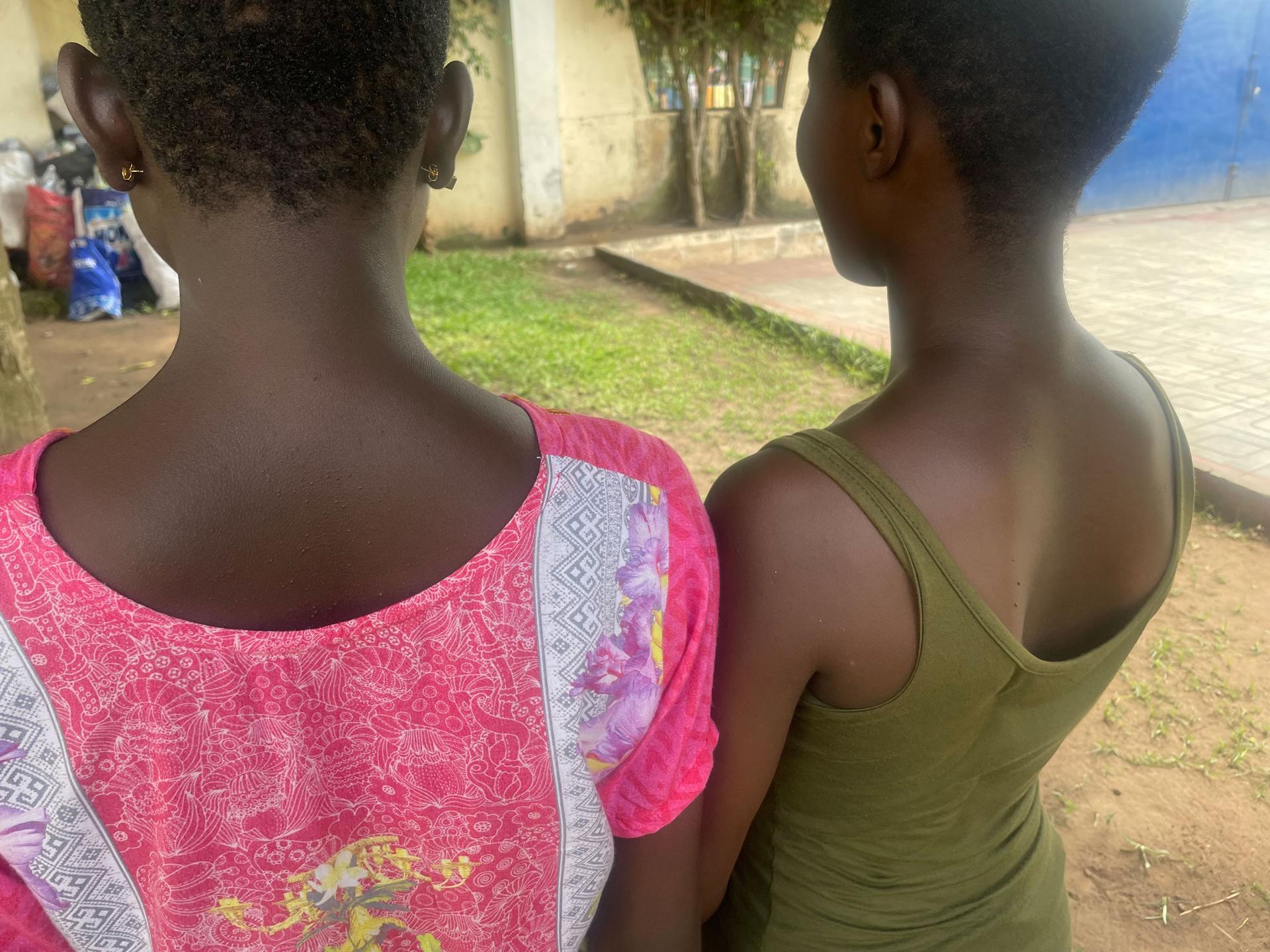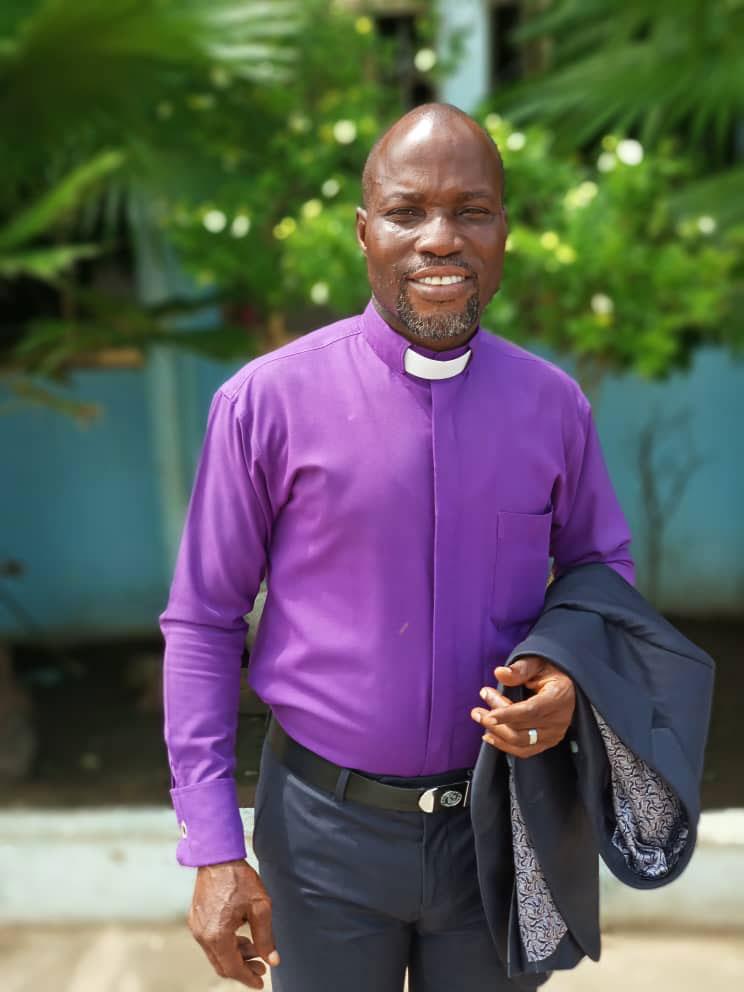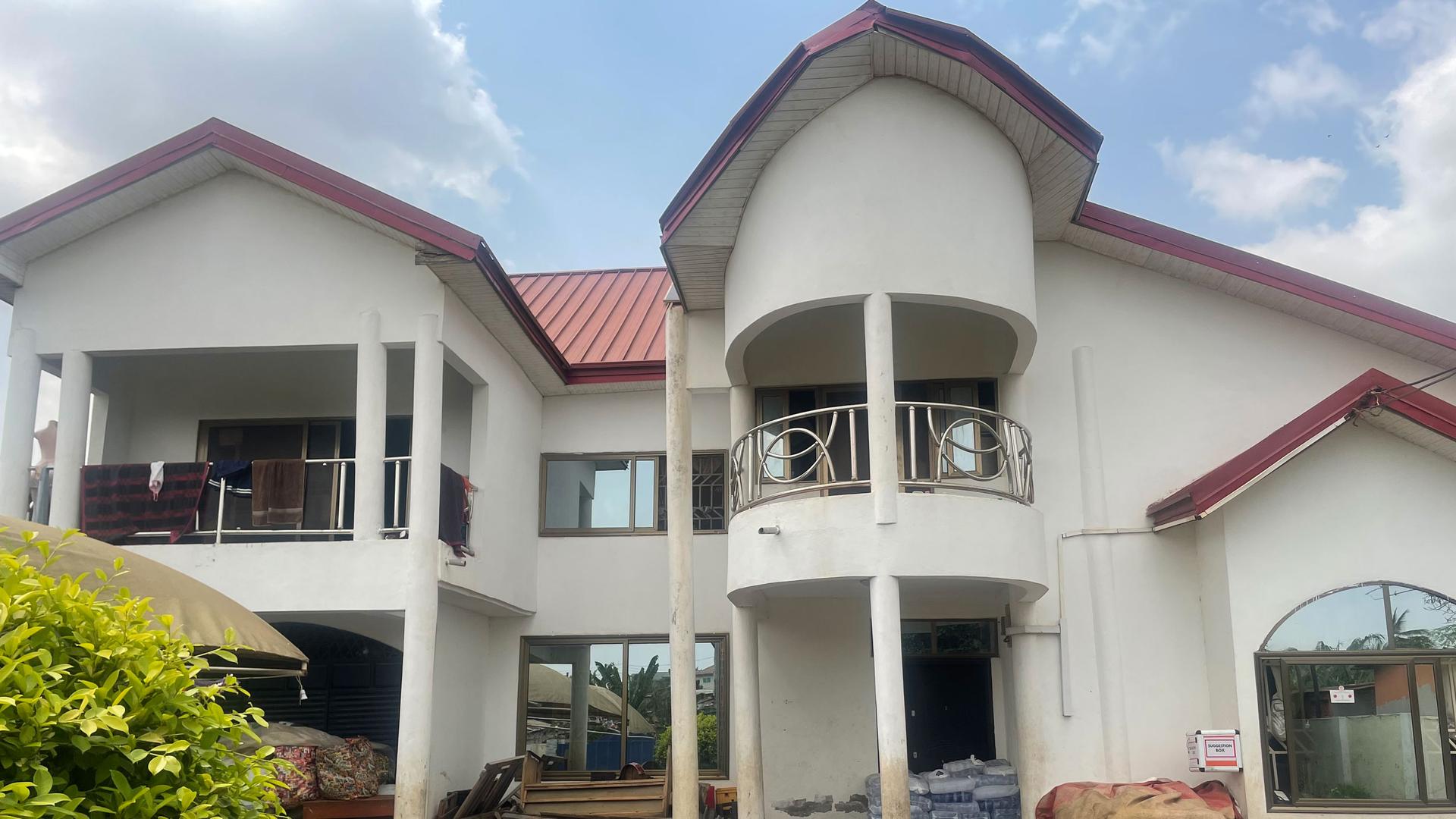This orphanage in Ghana provides hope — and acceptance — to children living with HIV
Isabel, 14, lives with a dozen other children with HIV in a 2-story apartment in Kwabenya, a densely packed neighborhood on the outskirts of Accra, Ghana. Her last name is being omitted to protect her identity as a school-aged child.
A good Samaritan brought her to the home when she was just 5. Her parents died of AIDS in 2013. Extended family members feared contracting the virus and rejected her.
She said life has been good so far at Motherly Love Orphanage, a home founded by Rev. John Azumah. The pastor, who also has HIV, founded the orphanage 14 years ago to provide hope and fight stigma against orphans living with HIV.
Here, Isabel gets her essential needs met. She also completed basic education and hopes to enter high school next year.
“I want to be an air hostess,” she said. “I want to see how other countries are doing so that I can compare it to my country and maybe see if we can also improve our country, too.”

Globally, 2.7 million children are living with HIV. The infection in children occurs most often during pregnancy, labor or breastfeeding. Without effective treatment, more than half of all babies born with HIV die before their second birthday.
Close to 15 million children worldwide have lost one or both parents due to HIV/AIDS-related causes. Three quarters of these children live in sub-Saharan Africa, where communities often refuse to accept them, especially if they are HIV-positive.
In Ghana, there are over 230,000 children orphaned by HIV/AIDS.
Opening doors for children with HIV
Azumah has been living with HIV for 22 years. When he received his HIV diagnosis in 2000, he said he thought he was going to die. He confided in his senior pastor.
Azumah said he was excommunicated by the church after his head pastor announced his HIV status to the entire congregation. His family experienced immense stigma. Shopkeepers wouldn’t even sell to his children.
“Those days, whenever my children went to even buy foodstuff, people said there was AIDS on the money because it’s being handled by an AIDS patient. So, you see, the stigma was very bad,” he said.

When Ghana’s Aids Commission reached out to him in 2010 to do advocacy work on a nationwide campaign, his life’s mission formed. People started reaching out to him about HIV-positive orphans who were abandoned by their relatives.
That’s when he decided to open a home for them.
One-of-a-kind care
Motherly Love is a rare refuge in Ghana.
“Many people keep knocking at our door but we have limited accommodation,” he said, adding that it’s hard to reject children who may otherwise die on the streets.
But the challenges are plenty. Azumah gets antiretroviral drugs from the government for free, but“They don’t take only antiretrovirals. We take other essential medicines like immune boosters, vitamin C, blood tonics … So these medicines are expensive.”
And as a nongovernmental organization, he still has to pay for food, housing (the building is rented), and private schooling, while donations have slowed during Ghana’s economic downturn.
State neglect
Today, due to the ongoing COVID-19 pandemic and the war in Ukraine, many high-income countries are cutting back on aid and resources for HIV/AIDS.
Ghana’s AIDS Commission said it has serious financial challenges and continues to engage partners on how to provide better support to orphaned children living with HIV.

Child rights advocate Lilipearl Baaba Otoo lauds Azumah’s intervention.
“The state [is] supposed to be responsible for these children,” she said, adding that she is pushing for better policies.
“The painful reality is that there are more of these children on the streets. Yet, most orphanages in this country often don’t want to accept them after knowing their HIV status. I believe this is discrimination [and] it is unacceptable…” she said.
AIDS agencies worldwide have formed a global alliance to ensure that no child living with HIV is denied treatment by the end of the 2030, among other aims.
UNAIDS Executive Director Winnie Byanyima said the alliance must work to ameliorate the inequality that children with HIV experience.
“With the science that we have today, no baby should be born with HIV and no child who has HIV should be without treatment. … We will not allow this shameful and avoidable injustice to continue,” she said.
Hope for acceptance
Back at the Motherly Love Orphanage, the children continue to thrive and hope to contribute to a society that will embrace them.
Rejoice, 16, plans to attend high school next year and hopes to be a nurse one day.
“I want to help those who are sick and give them medicine and take care of them,” she said.
Azumah said he really has just one wish: “My joy will be that if tomorrow, I am no more, a home will be built for these children,” he said. So they’ll one day be able to say, “This is my home … I am going to where no one will stigmatize me, and I am accepted.”
